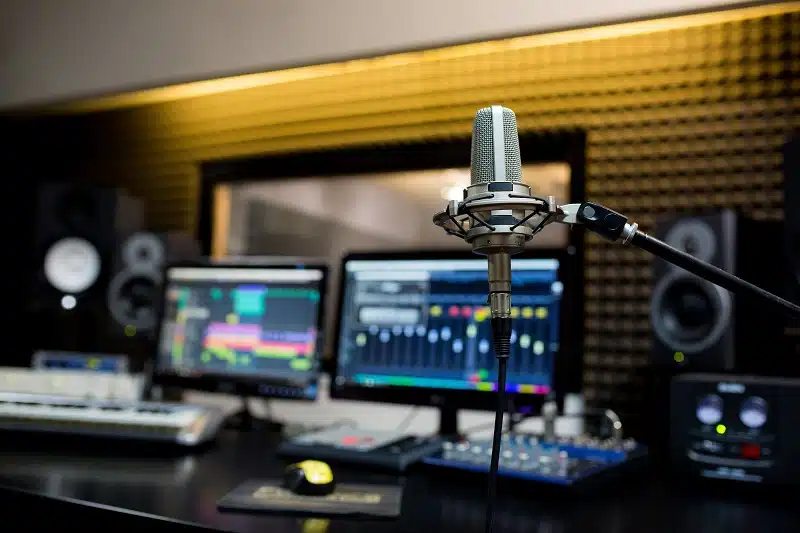 Days of Future Passed is the second album and first concept album by English rock band The Moody Blues, released in December 1967 on Deram Records. After two years performing as a struggling white R&B band, The Moody Blues were asked by their record label in September 1967 to record an adaptation of Antonín Dvořák’s Symphony No. 9 as a stereo demonstration record. Instead, the band chose to record an orchestral song cycle about a typical working day.
Days of Future Passed is the second album and first concept album by English rock band The Moody Blues, released in December 1967 on Deram Records. After two years performing as a struggling white R&B band, The Moody Blues were asked by their record label in September 1967 to record an adaptation of Antonín Dvořák’s Symphony No. 9 as a stereo demonstration record. Instead, the band chose to record an orchestral song cycle about a typical working day.
Recording sessions for the album took place at Decca Studios in West Hampstead, London during May 9 to November 26, 1967. The band worked with record producer Tony Clarke, engineer Derek Varnals, and conductor Peter Knight.The album’s music features psychedelic rockers, ballads by singer-songwriter and guitarist Justin Hayward, Mellotron played by keyboardist Mike Pinder,and orchestral accompaniment by the London Festival Orchestra.
Music writers cite the album as a precursor to progressive rock music. Bill Holdship of Yahoo! Music remarks that the band “created an entire genre here.”Robert Christgau cites it as one of the essential albums of 1967 and finds it “closer to high-art pomp than psychedelia. But there is a sharp pop discretion to the writing and a trippy romanticism in the mirroring effect of the strings and Mike Pinder’s Mellotron.”Will Hermes cites the album as an essential progressive rock record and views that its use of the Mellotron, a tape replay keyboard, made it a “signature” element of the genre. Allmusic editor Bruce Eder calls the album “one of the defining documents of the blossoming psychedelic era, and one of the most enduringly popular albums of its era.
Members of the group have claimed that originally, the Moodies’ British label, Decca Records, had wanted them to record a rock version of Dvořák’s New World Symphony for the newly formed Deram Records division in order to demonstrate their latest recording techniques, which were named “Deramic Sound.” Instead, the band (initially without the label’s knowledge) decided to focus on an album based on an original stage show that they’d been working on. However, Decca recording engineer Derek Varnals disputes this story, claiming that even at the beginning of the sessions in 1967 there was no intent to record a Dvořák album and that talk of this project did not emerge until the mid-1970s.
In 1978 the album was remixed because of deterioration of the master tapes. The original 1967 stereo mix has never seen an official CD release.
The ways in which the later mix departs most noticeably from the original are:
After the orchestral intro, “Dawn is a Feeling” begins more abruptly, and there is less echo on Mike Pinder’s vocal on the bridge, making it more prominent.
The orchestral intro “Lunch Break” goes on about 20 seconds longer before fading out.
The bridges to “(Evening) Time to Get Away” have John Lodge singing alone; all the backing vocals on that part have been lost.
The backing vocals on “Twilight Time” are heard through the entire song instead of only coming in at strategic points.
Original track listing
- Side one
- 1. The Day Begins: (5:50)
-
- “The Day Begins” (Peter Knight & The Moody Blues) – (4:08)
- “Morning Glory” (Graeme Edge) [unlisted track] – (1:42)
-
- 2. Dawn: (3:48)
-
- (Intro) (Peter Knight) [unlisted track] – (0:38)
- “Dawn is a Feeling” (Mike Pinder) – (3:10)
-
- 3. The Morning: (3:55)
-
- (Intro) (Peter Knight) [unlisted track] – (0:21)
- “Another Morning” (Ray Thomas) – (3:34)
-
- 4. Lunch Break: (5:33)
-
- (Intro) (Peter Knight) – (1:53)
- “Peak Hour” (John Lodge) – (3:40)
-
- Side two
- 5. The Afternoon: (8:23)
-
- “Forever Afternoon (Tuesday?)” (Justin Hayward) – (5:06)
- “(Evening) Time to Get Away” (Lodge) [unlisted track] – (3:17)
-
- 6. Evening: (6:40)
-
- (Intro) (Peter Knight) [unlisted track] – (0:38)
- “The Sunset” (Pinder) – (2:39)
- “Twilight Time” (Thomas) – (3:23)
-
- 7. The Night: (7:24)
-
- “Nights in White Satin” (Hayward) – (5:38)
- “Late Lament” (Graeme Edge) [unlisted track] – (1:46)
-







